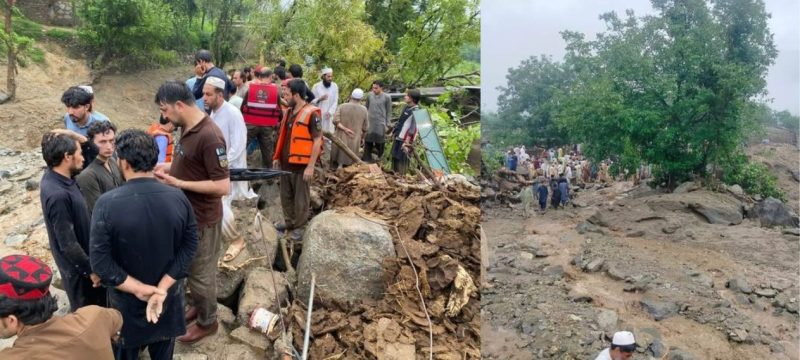At least 11 people have died in Khyber Pakhtunkhwa’s Bajaur district after a cloudburst and lightning strikes hit the Salarzai area. Several houses were damaged, and local authorities are struggling to reach affected areas.
According to local sources, the cloudburst caused water levels to rise quickly, cutting off access routes and making rescue operations difficult. Residents have been trying to help victims on their own amid the flooding.
In Lower Dir’s Maidan Sori Makan area, the roof of a house collapsed due to heavy rains, killing four people and injuring four others. Rescuers and locals managed to pull seven people from the rubble.
Meanwhile, torrential rains continue in Gilgit-Baltistan and Azad Kashmir, causing severe destruction. In these regions, 17 people have died from heavy downpours and glacier bursts.
In Ghizer, flash floods claimed eight lives, while Diamer reported two deaths. In Azad Kashmir, seven people lost their lives due to heavy rains and cloudbursts. Dozens of houses, bridges, and roads have been destroyed, leaving many residents stranded.
Authorities are monitoring water levels and coordinating rescue efforts, but access remains difficult in remote areas. The Pakistan Meteorological Department has issued warnings for continued heavy rains and possible flash floods in northern districts.
Local communities are raising alarms and assisting with relief efforts wherever possible. Emergency services are urging residents to stay alert and avoid traveling in affected areas.
The recent cloudburst and rains have highlighted the vulnerability of northern Pakistan to extreme weather. Experts warn that similar incidents may occur due to ongoing climate changes, making disaster preparedness critical.
Rescue teams continue to work in challenging conditions, and relief efforts are ongoing to support displaced and affected families. Authorities are calling for urgent assistance to manage the aftermath of these natural disasters.
In other news read more about Zhob Operation Kills 3 More Militants, Death Toll Reaches 50: ISPR









